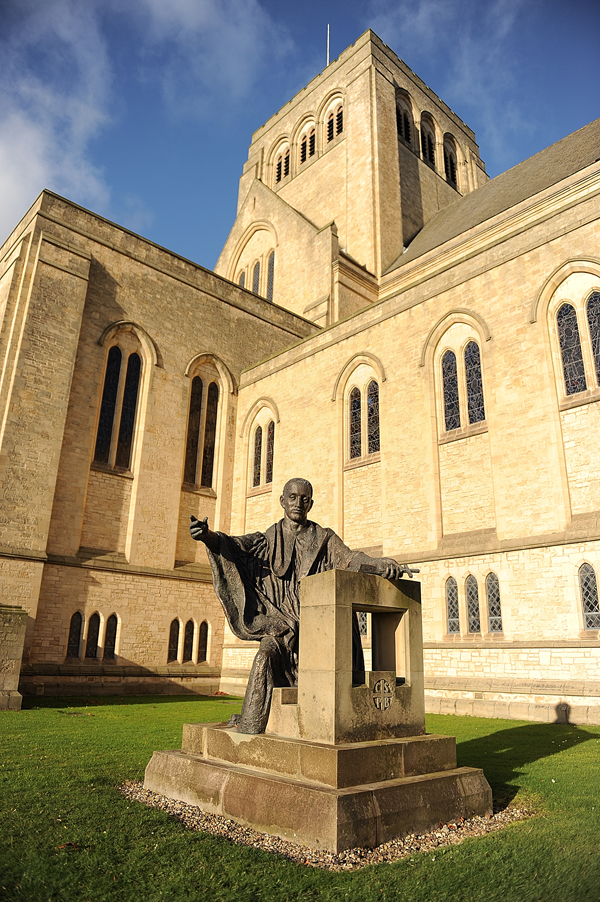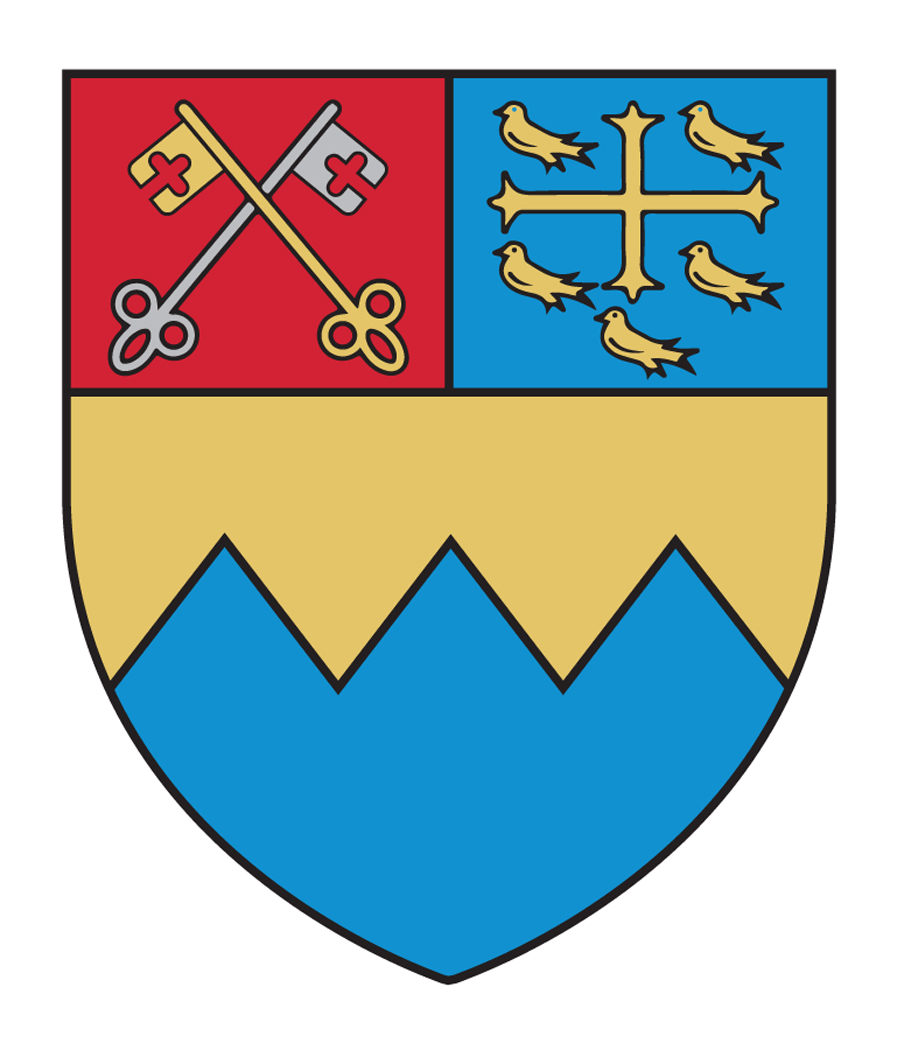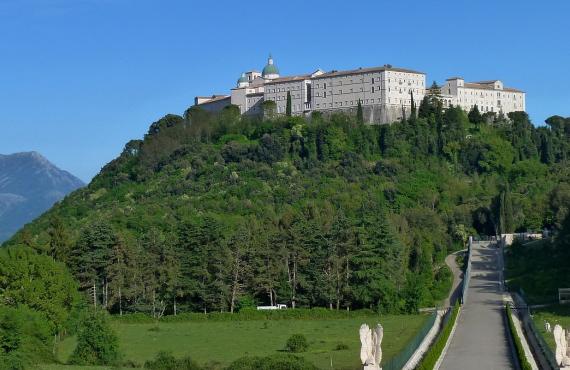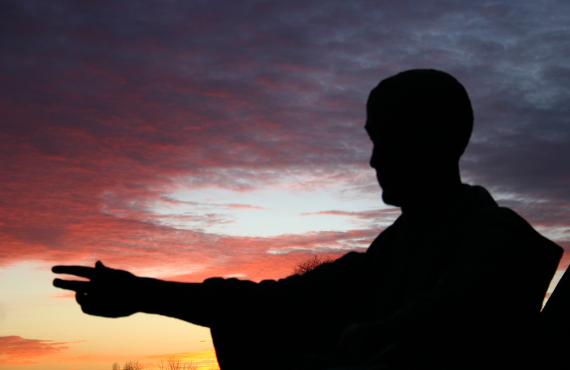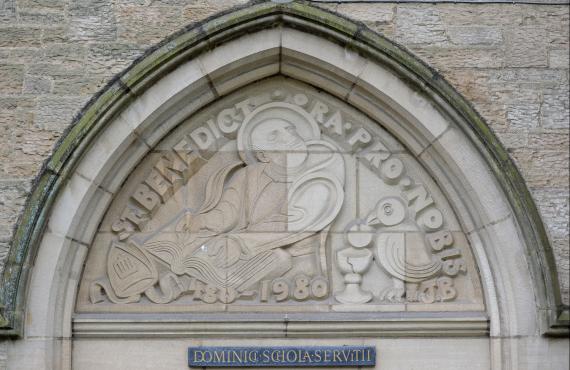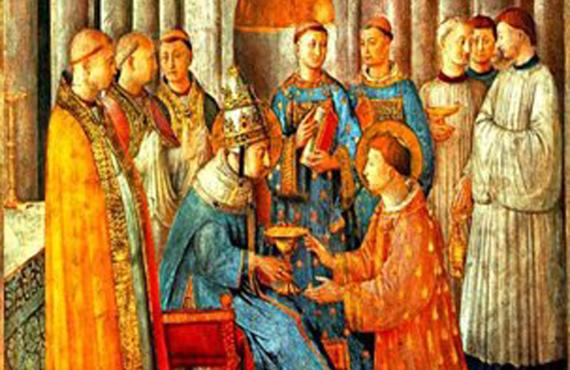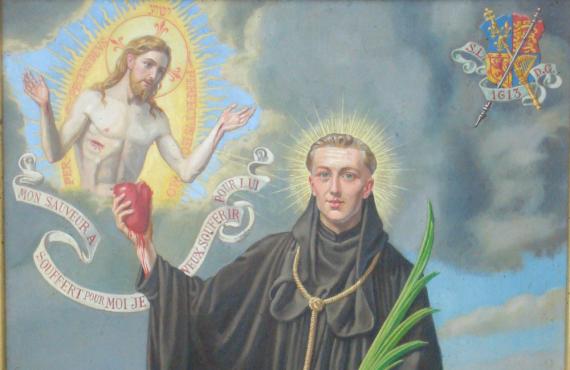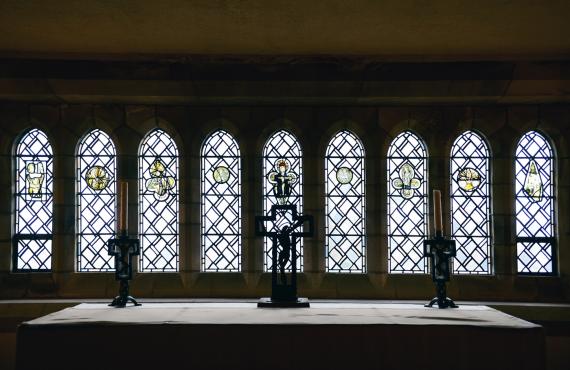Saint Alban Roe
Fr Alban Roe was baptised Bartholomew sometime in 1583, in Suffolk. He attended Cambridge University, and while there experienced something that caused his conversion to Catholicism. While visiting in St Albans, he heard that a Catholic recusant had been put in prison there for his beliefs, and chose to visit the prisoner, in order to argue him out of his superstitious ways. It did not work out like that, and the Catholic prisoner instead persuaded Bartholomew that he needed change. In February 1608 he took up a place in the English College (a seminary) in Douai, eager to become a priest. He was expelled in 1611, however, for criticising the principal. It so happened that a Benedictine house was given permission to establish itself at Douai in December of 1608, and it seems likely that young Bartholomew was acquainted with it. At any rate, wishing to avoid further embarrassment in Douai, he joined the novitiate at another English monastery, St Laurence’s at Dieulouard in 1613. Once ordained he went to England where he worked in secret as a priest.
In 1618 however he was imprisoned for being a priest in England - a ‘crime’ which carried the death penalty. Fortunately, he was released by King James I in a general amnesty in 1623 and banished. He returned to England however, and was re-arrested in 1625 and imprisoned in St Albans, where his adventure had begun so many years before. Luckily for him, his friends had him removed to the Fleet Prison in London where circumstances were much better. Indeed, like many others, he was allowed out into the streets of London by day, so long as he gave his word that he would return by nightfall. He used his freedom to minister to many.
While King Charles I governed without parliament, no imprisoned priests were executed. When the Long Parliament convened, however, the hangings began again in earnest (20 between 1641 and 1646). On 21st January 1642, Fr Alban and Fr Thomas Reynolds, a priest in his 80s, offered their last mass and were led to the gallows. They gave each other absolution. Just before his death, Alban asked the sheriff if his life would be spared if he renounced his Catholic religion and became an Anglican. The sheriff swore he would be spared if he did. Alban then said to all; “See then, what the crime is for which I am to die, and whether my religion be not my only treason...I wish I had a thousand lives; then would I sacrifice them all for so worthy a cause.” They were allowed to hang until they were dead before being quartered.
